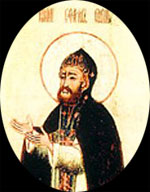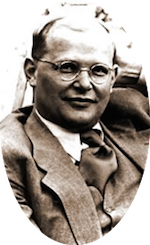The story of Naboth is an old one, but it is repeated every day. Who among the rich does not daily covet others’ goods? Who among the wealthy does not make every effort to drive the poor person out from his little plot and turn the needy out from the boundaries of his ancestral fields? Who is satisfied with what is his? What rich person’s thoughts are not preoccupied with his neighbor’s possessions? It is not one Ahab who was born, therefore, but — what is worse — Ahab is born every day, and never does he die as far as this world is concerned. For each one who dies there are many others who rise up; there are more who steal property than who lose it. It is not one poor man, Naboth, who was slain; every day Naboth is struck down, every day the poor man is slain. Seized by this fear, the human race is now departing its lands. Carrying his little one, the poor man sets out with his children; his wife follows in tears, as if she were accompanying her husband to his grave. Yet she who mourns over the corpses of her family weeps less because she [at least] has her spouse’s tomb even if she has lost his protection; even if she no longer has children, she at least does not weep over them as exiles; she does not lament what is worse than death — the empty stomachs of her tender offspring.
How far, O rich, do you extend your mad greed? ‘Shall you alone dwell upon the earth’ (Isa. 5:8). Why do you cast out the companion whom nature has given you and claim for yourself nature’s possession? The earth was established in common for all, rich and poor. Why do you alone, O rich, demand special treatment? Nature, which begets everyone poor, knows no wealthy, for we are not born with clothing or begotten with gold and silver. Naked it brings us into the light (cf. Job 1:21), wanting food, clothing and drink, and naked the earth receives us whom it brought forth, not knowing how to compass our possessions in the tomb. The narrow sod is equally spacious for poor and rich, and the earth, which did not contain the desires of the rich person when he was alive, now contains him entirely. Nature, then, knows no distinction when we are born, and it knows none when we die. It creates all alike, and all alike it encloses in the bowels of the tomb. What differences can be seen among the dead? Open up the earth and, if you are able, discern who is rich. Then clear away the rubbish and, if you recognize the poor person, show who he is apart, perhaps, from this one fact alone — that more things perish with the rich.
Continue Reading...



















No comments:
Post a Comment